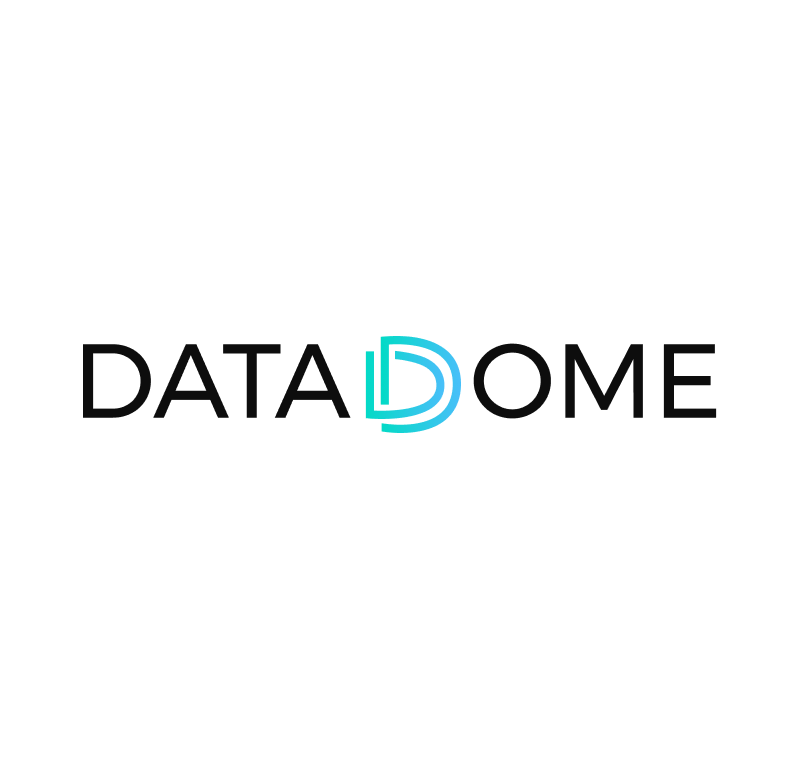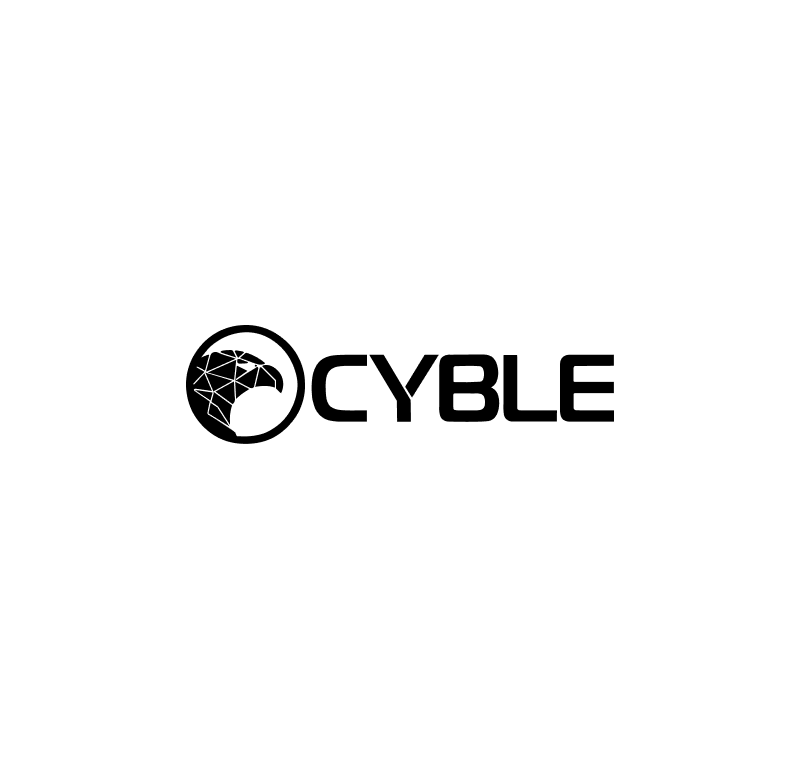Leveraging AI for Cybersecurity: 5 Startups That Are Already Doing It
8 MINUTES
May 11, 2023

AI has been one of the most controversial topics lately. The debates on its danger or groundbreaking potential are ongoing days by day. Some researchers and tech gurus warn that AI will take away our jobs and invade humanity eventually. Others provide compelling proof for the breakthroughs the tech industry can reach with the help of AI.
We are here not to judge what’s wrong or good or take someone’s side but to make an overview of the current situation. In this article, we will consume AI responsibly, dig into AI-based technologies in terms of cybersecurity and meet five startups with developments in this field.
The “Hold on, AI” Camp
The fear of AI evolution’s consequences focuses on the thought that machines will replace humans. Today it does only the drudge work for you; tomorrow, it takes your profession, and the other day it substitutes you.
We all remember that letter signed by the tech leaders and researchers calling to stop all further AI developments for six months because of its “profound risks to society and humanity.” It was not the only call to stop, and it won’t be the last. The Association for the Advancement of Artificial Intelligence released a similar letter calling to “harness AI for the betterment of all humanity.”
Let’s take a look at some of the AI opponents’ arguments.
Steve Wozniak, a co-founder of Apple, was one of those who signed the letter:
“If we build these devices to take care of everything for us, eventually they’ll think faster than us and they’ll get rid of the slow humans to run companies more efficiently.” “Will we be the gods? Will we be the family pets? Or will we be ants that get stepped on?”
Dr. Geoffrey Hinton, “The Godfather of AI”, quit Google to speak freely about AI danger:
“The idea that this stuff could actually get smarter than people — a few people believed that. But most people thought it was way off. And I thought it was way off. I thought it was 30 to 50 years or even longer away. Obviously, I no longer think that.”
Yoshua Bengio, a researcher specializing in Artificial Intelligence and a professor at the University of Montreal
He was among those who worked on the technology for systems like GPT-4: “Our ability to understand what could go wrong with very powerful A.I. systems is very weak.”
The “You go, AI” Camp
AI supporters believe that adequately trained AI in human hands will improve our lives in various fields like healthcare, cybersecurity, logistics, etc. As for one of the critical pain points — losing jobs, there is an alternative opinion that the boost of AI technologies will lead to vast career opportunities.
Also, AI technologies are believed to have a crucial positive impact on society’s safety thanks to the developments for safe driving or gun detection and prevention of mass shootings.
Let’s take a look at some of the AI supporters’ arguments.
Eric Schmidt, the former Google CEO:
“The fact of the matter is that AI and machine learning are so fundamentally good for humanity. As [these new solutions] emerge, they will benefit all of us, and I mean the people who think they’re in trouble, too.”
Satya Nadella, Microsoft CEO:
“Advanced machine learning, also known as artificial intelligence or just AI, holds far greater promise than unsettling headlines about computers beating humans at games like Jeopardy!, chess, checkers, and Go.”
Mark Zuckerberg, Co-founder, executive chairman and CEO of Meta Platforms:
"I think that AI is going to unlock a huge amount of positive things, whether that's helping to identify and cure diseases, to help cars drive more safely, to help keep our communities safe.”
AI for the sake of cybersecurity
Sam Altman, the OpenAI CEO:
“I’m particularly worried that these models could be used for large-scale disinformation. Now that they’re getting better at writing computer code, [they] could be used for offensive cyber-attacks.”
Even amateur cybercriminals can create malware and malicious codes with the help of AI-powered tools. Luckily, the codes written by ChatGPT are not complete enough (80%) to commit a cyberattack and require a correct human touch to achieve its goal. But about the rest 20%?
According to the global survey of IT decision-makers from North America, the UK, and Australia conducted by Blackberry, 51% of respondents believe that within the next year, we will face a cyberattack credited to ChatGPT. Also, the research has shown that 82% of IT decision-makers intend to invest significantly in their AI-powered cybersecurity within the next two years, and 48% will invest before the end of 2023.
AI solutions in improving cybersecurity
Dealing with tons of data is one of the most significant AI superpowers. It can analyze a large amount of malicious data and detect the threat and damage in real-time.
Sridhar Muppidim, CTO of IBM Security:
“On the solution side, AI can help us provide accuracy in detection. AI can help in accelerating investigation and automating the response. It can also help provide proactive mechanisms of protection so that you’re safe guarding against threats.”
Here are the ways the AI technologies can strengthen cybersecurity:
- real-time ongoing monitoring of all the activities on all devices across the network;
- identifying potential threats in minutes or even seconds;
- improving access measures and defense which is crucial in the remote work era;
- managing vulnerability by decreasing cybersecurity employees’ workload and providing them space and time to focus on more severe tasks;
- constant evolving and reacting to new unknown threats.
These are some of the general benefits of implementing AI in your cybersecurity system — the list goes on. Let’s pass on the specific tech companies and their use cases of AI cybersecurity.
Five AI cybersecurity startups
1. DataDom
Company’s website: https://datadome.co/
CEO & Co-Founder: Benjamin Fabre
COO-CFO & Partner: Olivier Trabucato
Lead Investors: InfraVia Capital Partners, Elephant, Isai.
Total funding amount: $81.2M

DataDom is the bot and online fraud protection for websites, mobile Apps, and APIs. This machine-learning solution can analyze up to 3 trillion signals daily to adapt to the newest threats instantaneously.
DataDom protects from account takeover, scrapping, denial of service, card cracking, credential stuffing, server overload, and fake account creation and provides vulnerability scanning.
What we like the most about it:
The company has recently closed $42 Million in Series C funding. Benjamin Fabre, CEO and co-founder of DataDome, commented on the deal:
“This cash infusion will fund global commercial rollout and R&D efforts to ensure that our offering continues to raise the bar, and stays well ahead of bot developers and fraudsters.”
2. Cyble
Company’s website: Cyble
Co-founder and CEO: Beenu Arora
Co-founder and COO: Manish Chachada
Lead Investors: Blackbird Ventures, Spider Capital, Y Combinator.
Total funding amount: $14.6M

Founded in 2019, a New York-based tech company Cyble delivers AI-driven, actionable threat intelligence solutions that enable clients to handle cyber risks and safeguard their digital assets effectively.
They acquire threat intelligence across the Deep, Dark, and Surface Web. The company’s expertise expands on such industries as financial services, retail and CPG, healthcare & pharmaceuticals, technology, and education.
What we like the most about it:
In March this year, Forbes announced Cyble as one of America’s Best Startup Employers in 2023. The company got an honored reward according to parameters such as employer reputation, employee satisfaction, and growth. Also, Cyble got a Gold reward as the Best Threat Intelligence Platform 2023 and Fastest-growing Cybersecurity Companies in North America.
3. Aura
Company’s website: https://www.aura.com/
Founder and CEO: Hari Ravichandran
CPO: ChenLi Wang
Lead Investors: Madrone Capital Partners, Warburg Pincus, General Catalyst, WndrCo.
Total funding amount: $500.7M

In 2014, Hari Ravichandran came up with the idea of creating Aura after he experienced credit data theft. In 2019, he decided to go on a mission to ensure safe digital lives and safer internet for everyone.
Aura is an all-in-one platform providing AI-powered protection of assets, identity, family, and tech and delivering alerts in minutes across all devices. Here are the fields of their defense: financial fraud protection, identity theft protection, privacy data protection, parental controls, cyberbullying security, VPN, antivirus, password manager, and smart vault.
What we like the most about it:
Aura acquired two companies — Pango, a digital privacy & security company, in 2020 and Circle Media, a screen time management and parental control provider, in 2021. Both acquisitions served on Aura’s commitment to creating a safer digital environment for everyone.
4. Seon
Company’s website: https://seon.io/
Co-founder and CEO: Tamas Kadar
Lead Investors: IVP, Creandum, PortfoLion Capital Partners.
Total funding amount: $107.8M

Seon was founded in Hungary in 2017 by two university mates, Tamas and Bence, who faced constant cyber fraud while working on their crypto platform. They decided to develop their protection solution since they couldn’t find the right fit.
That’s how Seon appeared — an online platform that detects and prevents fraud instantaneously by analyzing transactional data with AI & machine learning technologies. The software constantly checks your digital, social, phone, email, IP, and device data to identify fraud patterns and maintain data security.
What we like the most about it:
Seon acquired Complytron, a compliance and AML specialist company, in February this year for €2.5M (the amount isn’t confirmed). The acquisition will enhance Seon’s anti-fraud services with AML capabilities.
5. Apiiro
Company’s website: https://apiiro.com/
Co-Founder & CEO: Idan Plotnik
Co-Founder & VP R&D: Yonatan Eldar
Lead Investors: General Catalyst
Total funding amount: $135M

Apiiro founders, Idan and Yonatan, used to work at Microsoft with large engineering groups on managing risks and security tools. They experienced difficulties because their processes were mainly manual and time-consuming. So they decided to develop Apiiro.
Apiiro is a code risk platform that provides developers and security engineers comprehensive visibility and actionable insights into code bases before shipping to production and releasing in the cloud. In such a way, Apiiro initiates the process of inspecting applications during the design phase and, therefore, on each software supply chain step.
What we like the most about it:
In 2022, Apiiro raised $100M in Series B funding from several important Silicon Valley A-list investors.
Quentin Clark, managing director at General Catalyst, the leading investor:
“Security is one of these areas where you have to sort of rebuild the tooling to keep up with the changes in the development and operating platforms. So as the environment in which applications are being built changes so too must security tools, and so there’s an opportunity to go build a big important company here.”
Summary
Here is a curious quote from a Sci-fi TV series “Severance” (by the way, we highly recommend watching it if you haven’t seen it yet):
“What separates man from machine is that machines cannot think for themselves. Also, they are made of metal, whereas man is made of skin.”
Today we see that even these differences are fading away since we can create human-like artificial skin, and our machines learn so fast that they’re overtaking us in this intelligence race.
Only time will show who was right and wrong about AI’s role in changing our lives. But until then, we should do our best to use it for the good of humankind.








